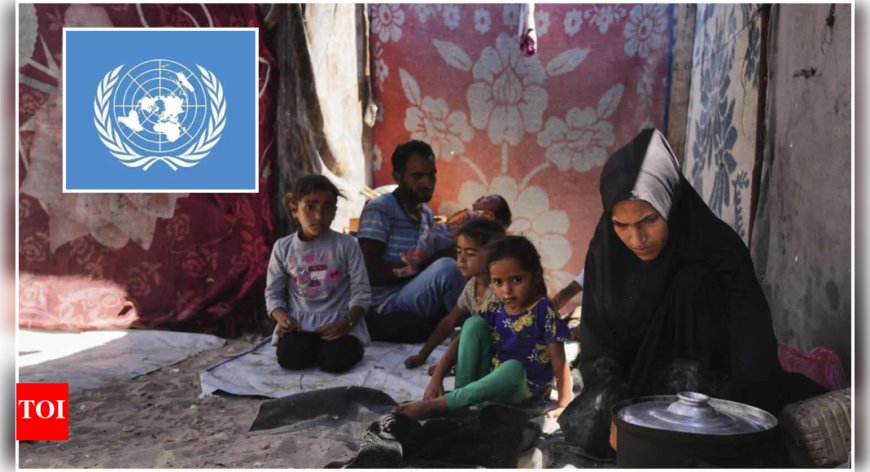UN walks back 14,000 Gaza baby death claim after backlash
The UN faced backlash after its humanitarian chief, Tom Fletcher, stated 14,000 Gaza babies could die in 48 hours without aid. This figure, based on a long-term malnutrition estimate, sparked controversy and accusations of exaggeration. Despite clarifications and increased aid access, Fletcher criticized Israel's aid distribution plan.

UN Walks Back 14,000 Gaza Baby Death Claim After Backlash
Breaking News, Daily Updates & Exclusive Stories - theoddnaari
The ongoing humanitarian crisis in Gaza has been thrust into the limelight as a statement from the United Nations drew immediate backlash. The UN's humanitarian chief, Tom Fletcher, recently claimed that 14,000 babies in Gaza could die within 48 hours without necessary aid. This alarming figure, drawn from long-term assessments of malnutrition, ignited controversy and fierce accusations of exaggeration. This article delves deeper into the incident, its implications, and the evolving response from the UN and Israel.
The Controversial Claim
Tom Fletcher's statement at a UN briefing caught many by surprise. The assertion that nearly 14,000 babies could perish without immediate aid seemed to have been based on unfortunate realities of malnutrition and scarcity of resources in the war-torn region. However, many observers pointed out that such dramatic assertions could create panic and diminish the credibility of humanitarian communications.
Criticism flowed from various quarters, including journalists, international observers, and governments, who perceived the claim as a gross exaggeration that could potentially jeopardize ongoing humanitarian efforts in Gaza. Such sensational claims can often lead to misinformation and misinterpretation of the dire circumstances in which many residents find themselves.
UN's Response to the Backlash
In light of the criticism, the UN quickly clarified its position. Officials stated that the figure was a reflection of statistical modeling rather than a direct forecast of imminent deaths. The UN emphasized their commitment to humanitarian principles, underscoring that while the humanitarian situation is indeed grim, clarity and accuracy in messaging are paramount to their efforts.
Aid Access and Distribution Issues
Despite the heightened tension surrounding Fletcher's comments, other aspects of the situation demand attention. Increased access to humanitarian aid has been observed, although challenges still exist. Fletcher himself pointed out criticisms regarding Israel's aid distribution plan, calling for immediate adjustments to ensure aid reaches those who need it the most. Several aid organizations have echoed his concerns over the distribution efficiency, urging for a more effective and transparent process.
The Humanitarian Crisis In Context
The humanitarian conditions in Gaza are the result of prolonged conflict, economic struggles, and infrastructural damage. Access to medical treatment, food, and clean water has been severely hampered, exacerbating the situation for vulnerable populations, including infants. As discussions continue, both humanitarian organizations and governments scramble for solutions that prioritize well-being over politics.
Conclusion
Tensions remain high as the UN takes steps to recalibrate its messaging and address the hunger crisis in Gaza. Moving forward, it is crucial to engage in dialogues that prioritize facts and real-time data, allowing for credentialed action in the face of adversity. It is vital for organizations to manage public perception responsibly while advocating for humanitarian needs. For more updates, visit theoddnaari.







